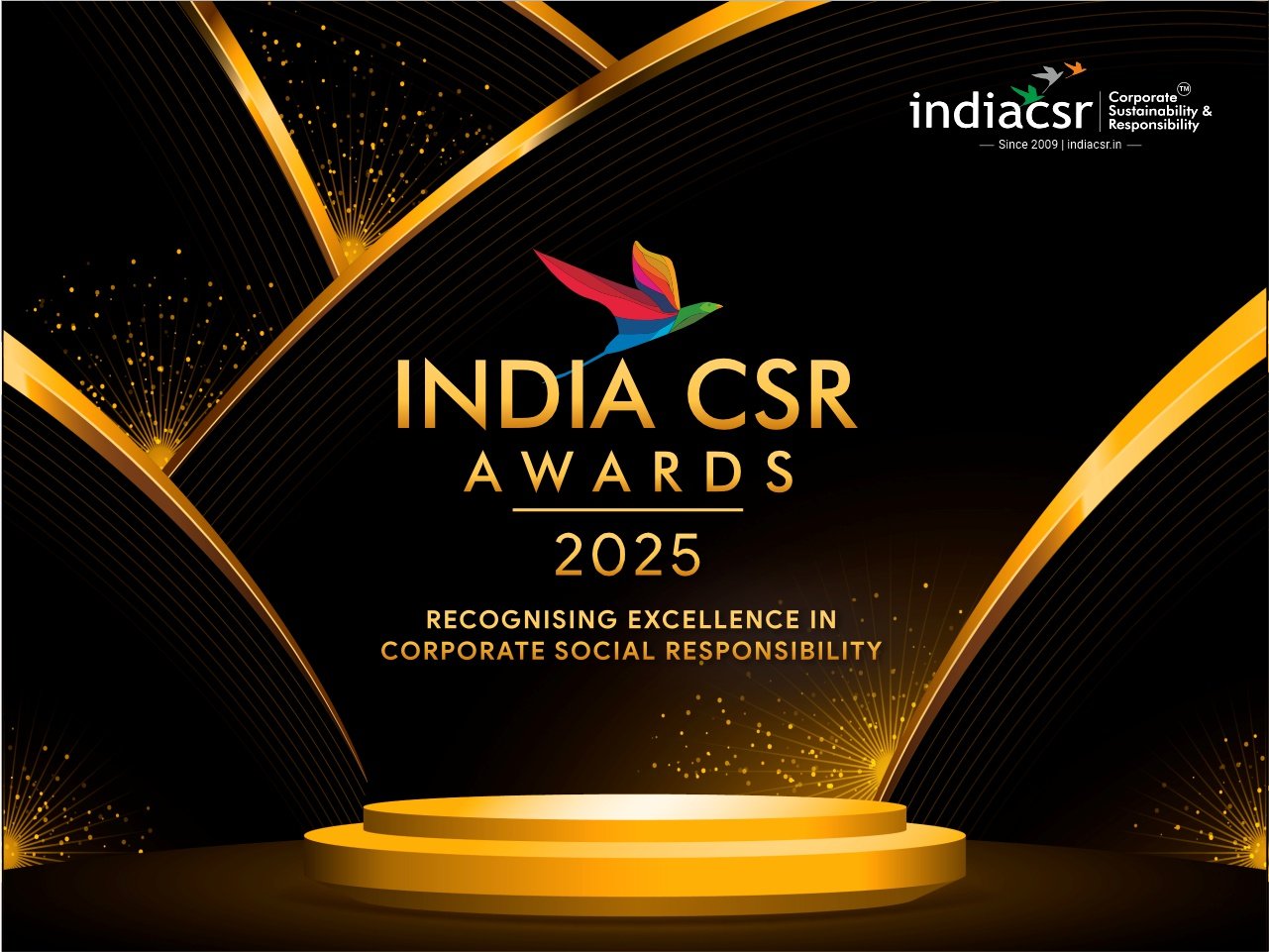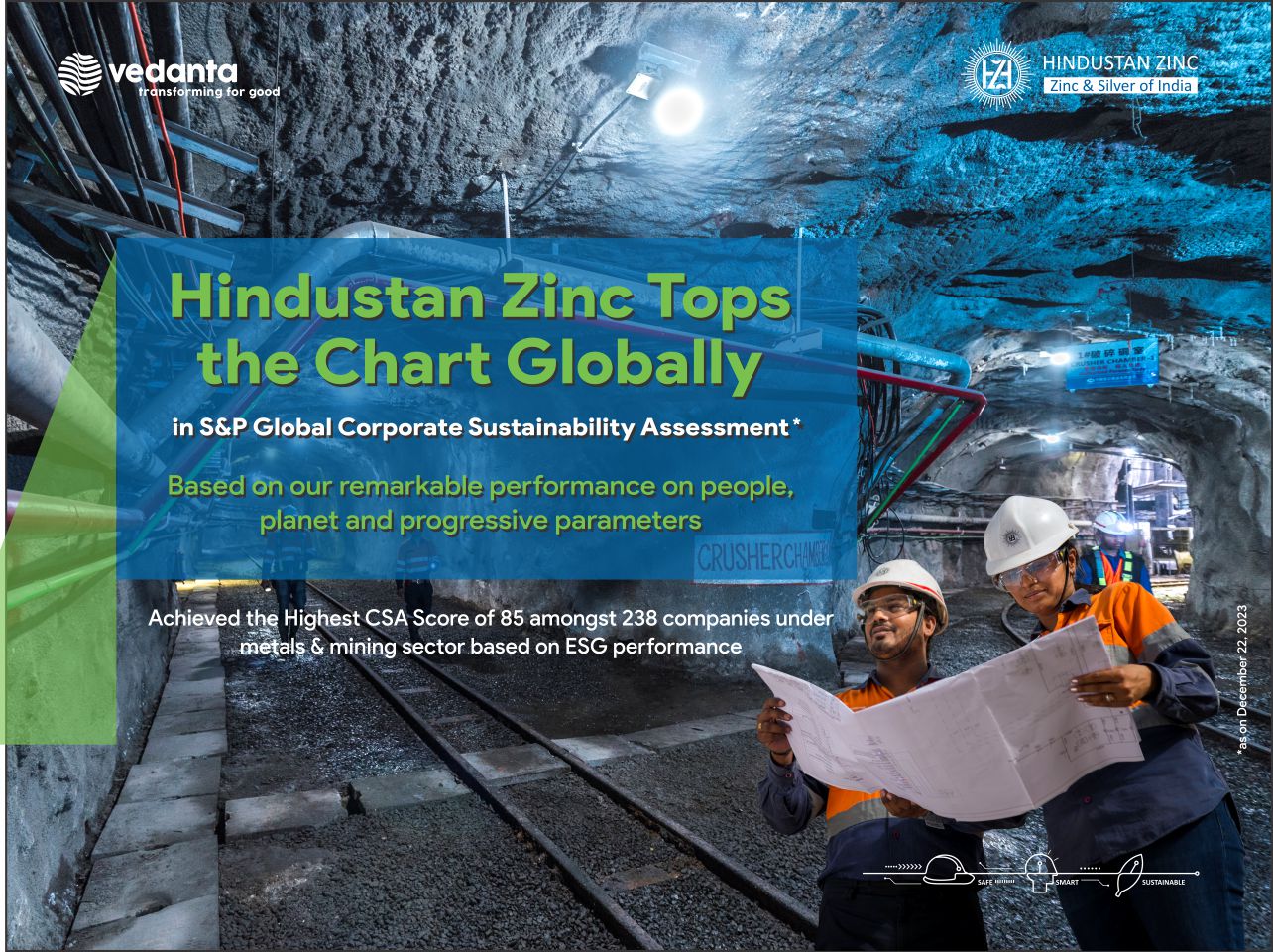By Dr Rupal Tyagi
 While our country has seen huge development over a period of time, it has, willfully or otherwise, neglected issues related to advancement that organizations can address through shared exertion.
While our country has seen huge development over a period of time, it has, willfully or otherwise, neglected issues related to advancement that organizations can address through shared exertion.
It is going to be a long upward haul in the battle against poverty and hunger in India.
Outright impoverishment accounts for a huge number of premature deaths in the country. As indicated by the World Bank report (2014), 11.8 percent of all Indians fall below the globally accepted poverty line of US$ 1.25 per day (PPP).
The Indian government has made an endeavour to advertise the model of charity or ‘giving something back to society’ through Clause 135 of the Companies Act, 2013 on Commitment to Corporate Social Responsibility (CSR). Corporates are thereby obliged to focus on group advancement and group-driven projects such as schools, parks, clinics and so forth.
While our country has seen huge development over a period of time, it has, willfully or otherwise, neglected issues related to advancement that organizations can address through shared exertion. Indian lawmakers have the opportunity to change the Indian business approach, setting strong achievement coupled advancement goals which require tweaking their business objectives.
Best practices adopted by corporates are being acknowledged by consumers through their buying habits.
According to Edelman Goodpurpose (2012), consumers are not only making purchase decisions with a delineated purpose, but also advocating purchase of brands to serve specific intentions.
72 percent of consumers would recommend a brand that supported a good cause over one that didn’t, 71 percent would help a brand promote their products or ser- vices if there was a good cause behind them and 73 percent would switch brands if a different brand of similar quality supported a good cause. But that begs the question: how is the social sector going to change brand- ing, marketing and advertising while developing our nation at the same time?
When you look at it, there is no universal solution. But India has its own solution. Some people believe that ‘mandatory control’ is self defeating. They believe that lack of alignment as well as clear understanding of what that ‘mandatory’ implies is the driving force behind embezzlement of trust.
However, the Indian government is looking at potential from the ‘development’ angle and not any other. It understands better than its counterparts that the country needs ‘expert contribution’ rather than ‘monetary contribution,’ which should obviate ‘monetary compulsion by the government.
If it were monetary, why only two percent, it could more; it could be in the form of normal Tax. The perceived value contribution remains technical expertise. Contributions from international conglomerates will boost the social development of the nation which is its primary need. Rather than using CSR just to advertise business or oneself, we should create a systematic approach or our own definition of sustainability of business as well as individuals.
Understand the Magic of PPP
There is a need to understand the role and importance of public-private partnerships (PPP) in the social sector. Why is government important for engagements with corporate or how can corporate support government in creating solutions? I believe the power held by government is its reach or local presence.
Through local access from government help, corporates can put in efforts to establish social projects that will eventually open up future markets in other segments, as well as enhancing corporate resources.
By solving local problems and providing the corporate with opportunities to grow and empowering them in specific segments to have the deciding say, corporate can also build their brand and reputation within the local community. On the other hand, corporate can support government to develop each corner of the nation through the infinite power of technology and skills.
Need of Apparent Intent and Agenda
The principal step is to distinguish a cause that one could focus on, that offers opportunity for achievable exercises, and that all stakeholders of the corporate house can identify with. Indian CSR is not just about the money but the contribution of all the interested parties/ stakeholders. It’s time now to take the corporate generosity course along with or more than vital CSR, i.e., adjusting business operations to sustainability and magnanimity.
It is a learning curve and most us would need to learn and teach our- selves along the way.
While CSR is a business technique and speculation, it should be used in a positive manner rather than mitigating negative impacts; in other words, get over the habit of using it to just forestall or alleviate damage and cure hurt ONLY on the off chance that you can’t really avoid or moderate the impending.
The target of CSR is honorable and is expected to strike a balance by offering extra assets to the portions which merit money-related backing. Once the expectation is correct, a target can be set up and morals primed, making it one of the easiest assignments around.
The right to fairness is a coveted goal of the nation and the approach embraced ought to positively bring about profit for fragments of the nation that merit it. What we need to do at this time is to prepare and organize ourselves realistically, physically, and genuinely to compose, build and continue a magnificent responsible combat.
Generating Capacity Within and Outside the Organization
Yes, we agree that the hierarchy of dominants present in organizations need to lead CSR workshops and sessions and diverse exercises to comprehend and examine the developing nature of CSR. Moreover, with CSR being a difficult to comprehend field, circumspect mindfulness amongst the workers must be brought out appropriately through different mediums as a matter of leading importance.
One of my fellows from a reputed automobile company pointed out ‘youth for work’. I palpably felt and, in fact, encountered corporate not intrigued or upset by the lack of young labour, nor the reason for such behaviour. It is possible that they accept that this segment does not feel obliged to observe such instructions and learning.
However, it’s a phenomenally wide- open door for the adolescent era that has the knowledge in social sector practices to be utilised by the corporate sector for CSR exercises, which might end up in a request and then a demand to observe the law.
One additional breadwinner can spare one family anguish and a cluster of 30,000 such individuals liberate it, but this simple fact does not seem to be understood by everyone. I don’t understand how numerous certified courses or MBA in CSR would facilitate employment of students if companies are not willing to hire their expertise in spite of the need.
Enforcement and Control, Not Just the List of Rules
Despite India’s countless voluntary organizations, CSR Law has ended up with an ulterior motive behind their mushrooming development. The distressing part is that just few are operating with integrity and transparency. This aspect is as important as for corporate, i.e., controlling NGOs involved in false transactions, defalcations and government tax evasion, etc. Some of them simply begin for misusing Section 35ac to exploit tax exclusions.
There is a need for strong regulations to control misappropriation of funds and ‘enjoyment’ of legislation even by NGOs. Associations like Credibility Alliance and Development Alternatives are putting in a strong effort; however, with- out strong legislative power, its chances of success will always be minimal.
The Consultant Must Be a Good Pilot
Dr. Colonel Verma, DG, Saritsa Foundation mentioned to me that CSR consultants themselves have to be GOOD PILOTS of their companies to not waste time and concentrate on vexing issues with skill and steadfastness. It made me realize that organizations were putting resources into CSR which, instead, needed to be invested in social speculation.
That should be the mission in the absence of a road guide, best practices, and execution schema, where, we as consultants could steer companies through appropriate guidance rather than by inviting them to five star lounges for paid conferences and seminars that are more or less for business networking rather than productive learning objectives.
We ought to talk less but endeavour to comprehend more and meet expectations through dialogues on CSR rather than creating a ‘band-aid’4 patchwork approach. As experts in the market, consultants should motivate associations to opt for route to have any kind of effect and consider it as a splendid invitation for each of us to take ideology and implementation to the next level.
Realise, Feel and Accept the Responsibility!
H&M launched its closed loop collection which is made of 20 percent reused mate- rial from gathered pieces of clothing. Since 2012, H&M has been gathering discarded pieces of clothing worldwide, as reported by CSR Today magazine in its June 2014 issue. Similarly, when I see companies like Bombardier, the world’s only producer of trains and aeroplanes who are utilizing 95 percent recovered material to construct rails, I do feel on the off chance that, if more associations were to resort to such practices, it would an incredible commitment to the betterment of our destructively violated environment.
Some organizations have successfully understood CSR as a subset of manage- able business practice and diminishing the waste era rather than enjoying “occasions” under the garb of CSR. Ahmedabad Municipal Corporation (AMC) is a case in point and another example of an organization that has created a cell that will help methodology ventures in order to guarantee corporate support in metropolitan tasks, according to a TOI report quoted in CSR Today, June edition.
60 percent of our populace is occupied in the farming sector in India. This is our root of sustenance as well as the spine of the nation. Advancement in training about nourishment, development of methods for optimal growth of the harvest is a concrete need in the business. We can see some corporate contributing to this sector, but we need a lot more. Personally, I feel this is the most important need for future generations’ sustainability, among others.
Without thinking, companies incessantly lose and leave the path of sustainability to win millions. The Indian system will give us all an opportunity to reconnect by way of togetherness and evoke passion towards co-creating a financial, ecological and socially imbued esteem with an intention to satisfy stakeholders.
If implemented with genuine intent, this issue can transcend into a prospect for structural and policy transformation, strategy and management planning as well as a strong economical framework that would boost profitability. If we are able to create true ownerships and deliver ‘responsibilities’, an automated system of opportunities for profit in long term sustainability for each enterprise and the business sector as a whole will indubitably emerge.
(Dr. Rupal Tyagi is author and consultant in area of Corporate Social Responsibility)
(The article first appeared with Linkedin.)
Please send your feedback to editor@indiacsrnetwork.com





















